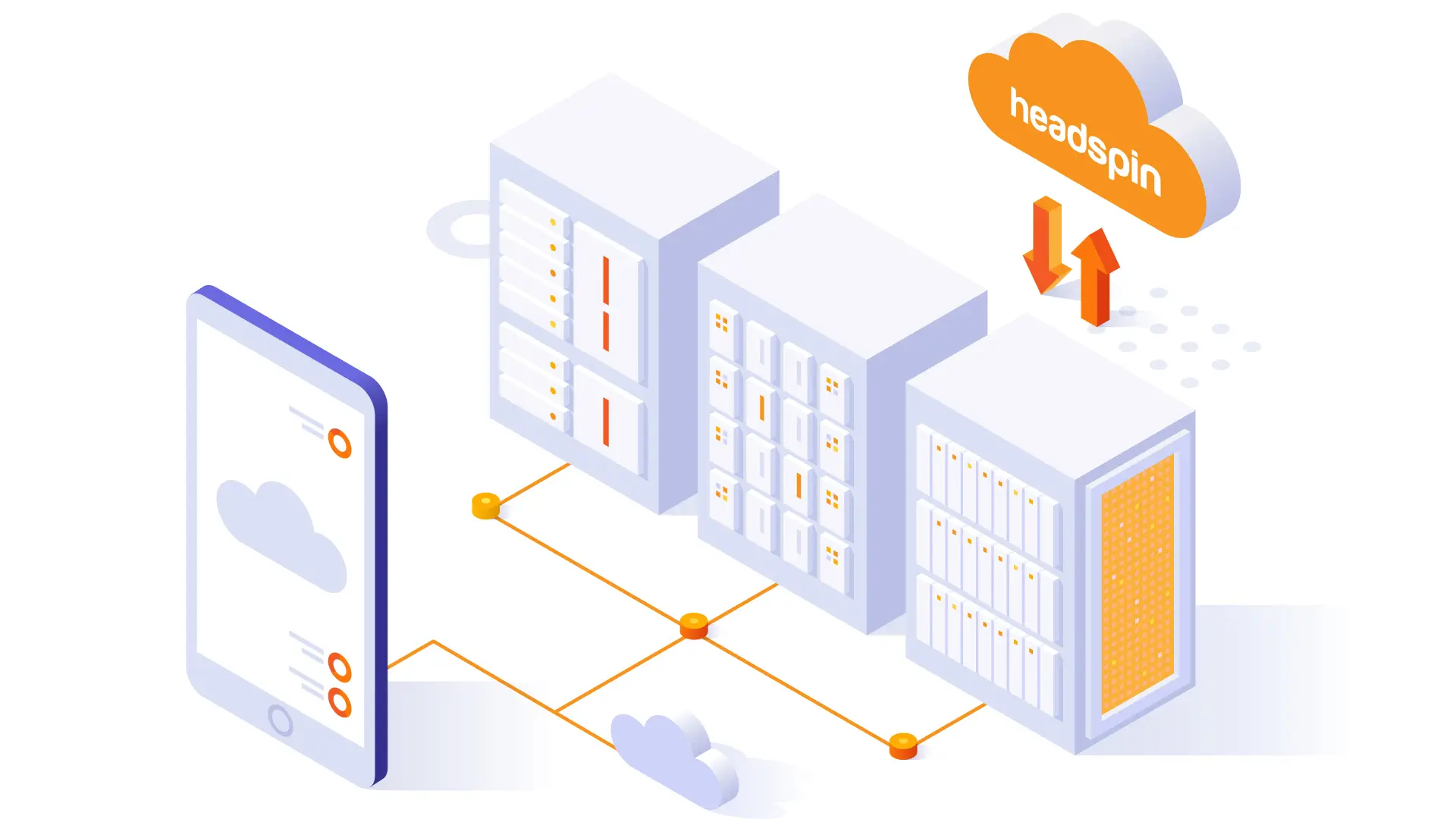Maintaining functional and user-friendly high-traffic mobile applications is critical for remaining essential in today’s digital age. For this, applications must be tested regularly as new features are introduced. While still effective in some cases, traditional in-house device labs might result in higher costs and wasted time. At this point, cloud mobile testing becomes relevant. The main benefits of cloud mobile testing include automated processes combined with collaborative work environments and reduced expenses, and improved efficiency.
Traditional testing techniques frequently find it challenging to keep up with the quicker cycles of mobile testing. Here’s why leveraging AI testing in mobile environments further improves the efficiency of the test automation process. The mobile deployment procedure benefits from automation and advanced problem identification through artificial intelligence, which results in user-friendly mobile performance.
This article will discuss AI-based cloud mobile testing, its benefits, and best practices. It will also explore some of the challenges involved in it. Before proceeding, let’s first understand the essence of AI-driven cloud mobile testing.
What is AI-driven cloud-based mobile testing?
Cloud-based mobile testing with AI is a testing approach that uses cloud technology to enable developers and testers to connect to mobile devices via the Internet. It uses artificial intelligence technologies to improve the efficiency, accuracy, and speed of testing mobile applications. AI-based cloud testing leverages machine learning, natural language processing, and other AI techniques to automate repetitive tasks, generate test scripts, and detect bugs.
Cloud-based platforms give testers access to various devices running various operating systems and network carriers. These platforms allow applications to be uploaded using APIs or web clients, making testing more convenient and efficient.
Using real devices for testing can be expensive, making cloud-based mobile testing a preferred choice. Cloud-based testers can use cloud-based emulators that can be used for basic user behaviours like tapping, zooming, and scrolling.
AI algorithms can analyze test logs, identify potential issues, and predict mobile application behaviour to ensure better test coverage. It can also predict areas of the mobile application that are likely to fail, allowing testers to focus on high-risk areas. Under different performance conditions, AI systems will monitor user experiences to generate optimizations that improve usability.
How does AI enhance cloud mobile testing?
Traditional in-house device labs do not necessarily have the tools or infrastructure needed to allow testers to successfully test on all real-world instances. AI has become a game-changer in the mobile testing landscape, opening up new doors to handling complexity and increasing the accuracy of the testing process. AI-based cloud mobile testing is necessary for testing teams so that they can keep up with regular device upgrades, testing standards, and more. Some other significant benefits are below:
Automated Test Generation- AI-powered test generation can assist in developing test cases based on user behaviour and past data. It ensures complete test coverage and detects issues that manual testing could have missed. Cloud-based mobile testing, when combined with AI, helps teams boost their level of automation and allows organizations to save resources and time by allowing testers to conduct multiple tests simultaneously across devices, browsers, and operating systems. This integration of cloud-based mobile testing with AI capabilities provides testers with access to all relevant devices and functionality, allowing for enhanced automation.
Predictive Analysis- AI can detect potential problems and performance bottlenecks before they occur. By evaluating patterns and trends, AI helps developers deal with problems more proactively, resulting in a better user experience.
Quick Feedback- AI can speed up testing by automating repetitive operations and completing tasks in parallel. This allows developers to receive feedback rapidly and go through numerous development cycles, improving the quality of the applications that are being developed.
High Accuracy- AI minimizes human mistakes in testing operations and evaluations by handling extensive datasets with high accuracy.
Enhanced Device Coverage- AI-based cloud mobile testing allows testing teams to perform application testing across diverse devices, browsers, and operating systems. The cloud-based device labs will access the most recent devices and releases as they become available.
Cost-Effectiveness- It can be expensive and time-consuming to maintain physical, on-premise device labs. By providing testing teams access to a large variety of devices without requiring physical devices on hand, cloud mobile testing, combined with a cloud device lab, offers a more affordable option.
Scalability- Teams may scale their testing efforts according to their specific needs using AI-based cloud mobile testing. Testing teams may speed up the entire process of developing applications and reduce manual labour by running tests simultaneously on numerous devices.
Increased Collaboration- AI-based, cloud-based mobile testing provides teams with a unified platform to share results that improve their collaboration while boosting efficiency, visibility, and communication.
Test Real-World Conditions- By simply simulating real-world scenarios, AI-based cloud mobile testing allows testing teams to evaluate how well an application performs across a range of network speeds, connectivity environments, device configurations, and other factors.
Challenges in AI-Based Cloud Mobile Testing
Although there are many advantages of AI-based cloud mobile testing, it is crucial to be aware of any potential disadvantages in making smart decisions. Some of these include the following:
- Initial Learning Curve– Implementing AI in cloud mobile testing requires a particular level of expertise and understanding. Teams must gain an understanding of AI algorithm processes, together with model training methods and outcome evaluation techniques. This initial learning curve can be expensive, involving an investment in team training and growth.
- Cost of Implementation– Implementing AI in cloud mobile testing can be expensive, especially for smaller organizations. The cost of implementing AI-powered testing tools and infrastructure would be huge.
- Large Bandwidth Requirement– Effective cloud testing necessitates a large amount of bandwidth, which could raise testing expenses.
- Lack of Backup– Certain cloud-based testing tools require recovery and backup features, which makes re-execution expensive in the event of data loss.
- Security Concerns– The secure nature of cloud-based mobile testing platforms drives some organizations to remain concerned about data and code protection.
- Feature Changes Frequently – Cloud testing may not be appropriate for applications with frequent functionality changes, as it incurs additional costs and may not give significant benefits for unstable, high-traffic applications.
Strategies for scaling high-traffic mobile applications on the cloud with AI
In the challenging world of developing mobile applications, it is essential to ensure the quality and performance of applications. A cloud platform for mobile app testing offers various advantages, such as scalability and real-time monitoring. To fully utilize artificial intelligence (AI) in cloud mobile testing, teams must adhere to cloud-based testing strategies to help them fully integrate AI into their workflow.
Comprehensive test planning
AI should be employed first to create automated tests for essential application features and user interface functionality. Pay special attention to key features, performance, security, and cross-platform and device compatibility. Clearly define testing objectives, identify target devices and operating systems, and describe the testing extent to ensure full coverage.
Utilize AI tools and platforms
Choose the appropriate AI-based cloud platform based on the needs of testing. Before using the tool in the testing process, be aware of its advantages and disadvantages. The perfect AI testing tool should meet the unique requirements of the project and integrate smoothly with the organization’s existing workflow.
AI-based tools can efficiently run large-scale, repetitive test cases and assist testers in reducing the time and effort required to create and train AI models. Since high-traffic mobile applications are complicated and require continuous testing, LambdaTest is one of several AI-driven cloud testing platforms that enable teams to conduct extensive testing whenever they want on cloud infrastructure while offering cost savings, scalability, and flexibility.
LambdaTest is an AI-native test execution and orchestration platform that can conduct both manual and automated tests at scale. Its real device cloud allows testers to execute real-time and automated testing on over 3000+ environments, and real mobile devices, including both the latest and legacy versions of iOS and Android.
By automatically creating and maintaining test scripts, LambdaTest’s advanced test AI and ML capabilities make it one of the industry leaders for automating high-traffic mobile applications, saving time and effort when creating and managing test cases. By providing AI-driven capabilities like self-healing tests, intelligent auto-waits, automated test data generation, and parallel test execution across multiple real devices and browsers, it intends to make mobile test automation easier.
In addition, faster issue fixes and feedback loops can be achieved by the platform’s seamless integration with well-known CI/CD tools, which enable automated testing at every step of the development cycle.
Leverage NLP technology
To extract relevant data from reports, documentation, and feedback, use Natural Language Processing approaches. Creating test cases and discovering possible areas for improvement is made easier by the use of natural language processing (NLP).
User experience testing
The application should be tested through usability tests to collect user feedback about how users experience navigation and design, and overall usability performance. To find UI and layout irregularities across different devices, combine AI and visual testing. Alignment, responsiveness, and graphical problems can be detected by AI algorithms through the analysis of visual aspects.
Adopt an exploratory testing mindset
Through the use of AI to facilitate exploratory cloud mobile testing. Offer testers insightful advice, comments, and skilled suggestions to help them identify potential issue areas.
Collaboration and communication
To streamline cloud mobile testing and increase overall efficiency, encourage cooperation and knowledge exchange among AI professionals, developers, and testers. Utilize the concepts, insights, and knowledge gained to optimize cloud mobile testing’s advantages from AI and machine learning.
Continuous integration and continuous deployment
Continuous testing will be facilitated by integrating AI-based cloud mobile testing into the CI/CD pipeline, guaranteeing early issue detection and faultless updates to the application.
Cross-device testing
Test the high-traffic application on a variety of devices and operating systems that are available on the cloud platform to ensure compatibility and reliable performance in a variety of scenarios.
Gather diverse data for testing
Comprehensive, diverse data improves the performance of AI algorithms. To train AI models, gather a variety of data from different user demographics, devices, and usage patterns.
Performance testing
Conduct performance testing to assess the application’s responsiveness, speed, and dependability under various circumstances, such as periods of high usage. Test the application’s capacity to handle and manage increasing user loads as the user base grows to ensure it can continue to operate exactly as intended.
Real-time monitoring and reporting
To track the application’s functionality and generate comprehensive data that will speed up the identification and resolution of issues, implement real-time monitoring.
Conclusion
Finally, AI in cloud mobile testing is transforming how developers and testers approach the quality, efficiency, and scalability of high-traffic mobile applications. Teams can employ strong AI technologies to automate time-consuming tasks, predict future difficulties, and ensure enhanced test coverage across several devices.
When combined with AI, cloud-based mobile testing is a game-changer for mobile application development. Access to a wide range of platforms and devices from any location represents another advantage of cloud-based mobile testing with AI integration. Teams can efficiently run tests in parallel across various virtual devices, guaranteeing full application coverage. By following best practices, organizations achieve maximal testing efforts to deliver top-quality applications that lead to satisfied users.





